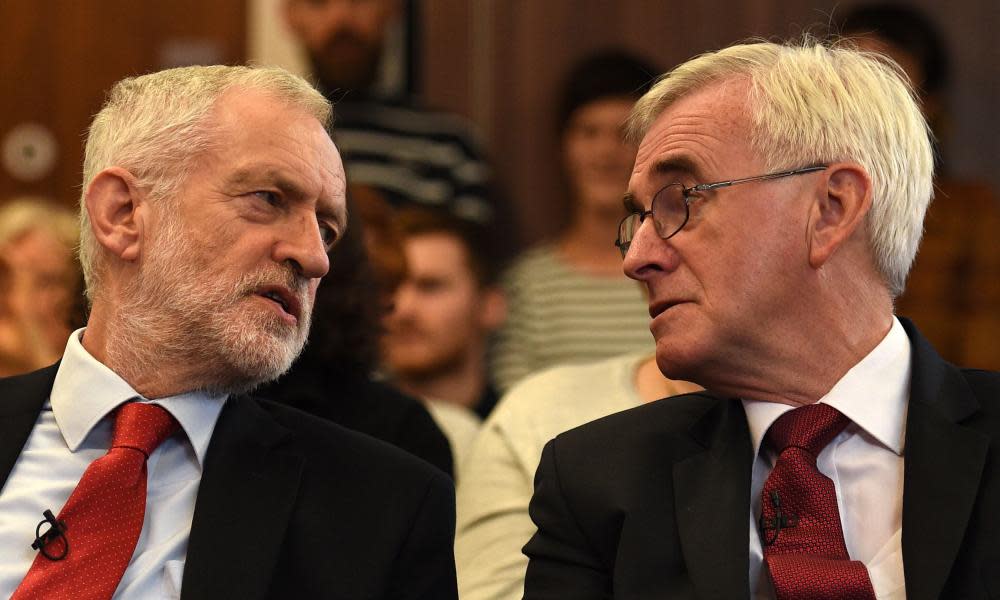The Labour manifesto: five key areas in this weekend's talks

On Saturday, Labour will hold its clause V meeting to finalise the contents of its election manifesto. Here are five key areas of debate:
Climate change
A motion passed at conference suggested Labour would target net zero emissions in 2030 – though the wrangling over the wording was so intense it took two separate compositing meetings to reach agreement.
Related: Labour manifesto to promise dramatic shift in workers' rights
Unions, and in particular the GMB, are concerned this is an unachievable target, and would result in mass job losses. They reckon they have won this one: when Rebecca Long-Bailey announced Labour’s policy in October, it included a target of reaching net zero by “the 2030s”.
Migration
Len McCluskey’s high-profile intervention this week – warning against any significant increase in migration without tougher labour market laws – was a window into the struggle between two aspects of Corbynism.
Across the new left, including the campaign group Momentum, which has recently begun taking more of an interest in policy, there is a desire to shift Labour to a much more open approach, definitively rejecting the approach symbolised by Ed Miliband’s “Controls on Immigration” mugs in 2015.
But the Labour leader’s trade union backers – and many of his close advisers – are conscious of the risk of alienating Brexit-supporting Labour voters, many of whom, they believe, remain concerned about migration. They are expected to win this one too.
Brexit
Labour’s Brexit policy has evolved significantly over the past 12 months, under significant pressure from pro-remain members of the shadow cabinet, including Keir Starmer and Tom Watson.
But with Watson leaving parliament, and Starmer and fellow remainer Emily Thornberry all but absent from the campaigning frontline, there is unlikely to be any further change in the manifesto.
Indeed, Corbyn kicked off the campaign by telling the Guardian: “The debate is over” – and signalling that he would not say until after an election which side he would take in a referendum.
Scottish independence
Labour is keen not to suffer the fate of Miliband, who spent much of the 2015 campaign batting away hypothetical questions about how he would deal with a hung parliament, and ended up Photoshopped into Nicola Sturgeon’s pocket.
But at the same time, Corbyn’s team knows its path to power may well lie in persuading Sturgeon’s party to support Labour as a minority administration – and Corbyn himself is instinctively keen on self-determination for small states.
Corbyn appeared to suggest his party would not accept another independence referendum in the first term of a Labour government this week – but aides later clarified his position to say it would not be in the first year or two. Expect this part of the manifesto to have been pored over intensely.
Tax and spend
John McDonnell has said he will publish a “grey book” alongside Labour’s manifesto, setting out his costings for the party’s policies and how they will be paid for.
He has already said he would raise the top rate of tax to 50p for workers earning more than £150,000 a year, repeating a 2017 plan; and announced a new tax on media giants to pay for Labour’s broadband plan – but there may well be more tax changes to come.
Labour will be keen to counter the perception, pushed hard by the Conservatives this week, that ordinary taxpayers will end up footing the bill.
But it will also want to avoid thinktanks such as the Institute for Fiscal Studies picking holes in its plans.

 Yahoo News
Yahoo News 
